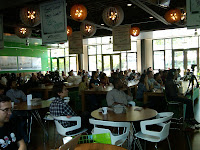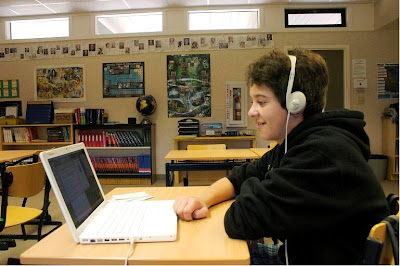When Flexibility Becomes an Operating Principle: Lessons from a Nonprofit
This post originally appeared on CSRwire Talkback.
The staff at Benetech, the nonprofit tech company I lead, recently came together to answer this question: “What values define our identity and drive our work?” It was a very meaningful exercise for our entire team, resulting in what we call “The Seven Benetech Truths.” Among them are truths like “We Get Stuff Done” and “Value Flexibility” — highlighting that we focus intensely on results and upholding our commitments, while also being flexible about how we get the work done. For many in the nonprofit space, being “flexible” and “getting stuff done” don’t always go hand in hand. But for an organization like Benetech, naming them as part of our values and putting them into action has led to better ideas and stronger products. Our most recent initiative, SocialCoding4Good, and last week’s launch of its Corporate Partner Program, which offers companies a new, skills-based volunteering channel for employee engagement and their pro bono initiatives, is an example of this.
Today, SocialCoding4Good provides both a platform to connect tech volunteers with our nonprofit software “Project Partners” (organizations like FrontlineSMS, The Community for Open Source Microfinance, and the Wikimedia Foundation) and a managed service that focuses on quality matches — connecting the right volunteers to the right projects for lasting impact. Now, volunteers get to contribute time and talent to causes they are passionate about and social good projects get the expertise they need to advance their work.
Over the past year, SocialCoding4Good has been focused on providing shared value across sectors. We’re actively participating in initiatives such as the Taproot Foundation Pro Bono Summit and the A Billion+ Change campaign, and we’re working closely with tech giants like HP and VMware to match and structure the right opportunities for their engineering teams to collaborate with our Project Partners. These opportunities can range from small tasks to extended projects but they all result in enhancements or improvements to open source software being actively used to address social issues such as education, environment, health, and poverty alleviation.
The staff at Benetech, the nonprofit tech company I lead, recently came together to answer this question: “What values define our identity and drive our work?” It was a very meaningful exercise for our entire team, resulting in what we call “The Seven Benetech Truths.” Among them are truths like “We Get Stuff Done” and “Value Flexibility” — highlighting that we focus intensely on results and upholding our commitments, while also being flexible about how we get the work done. For many in the nonprofit space, being “flexible” and “getting stuff done” don’t always go hand in hand. But for an organization like Benetech, naming them as part of our values and putting them into action has led to better ideas and stronger products. Our most recent initiative, SocialCoding4Good, and last week’s launch of its Corporate Partner Program, which offers companies a new, skills-based volunteering channel for employee engagement and their pro bono initiatives, is an example of this.
Matching Techies With Social Causes
SocialCoding4Good began with the idea of building a sort of Match.com for tech volunteerism — an algorithmic platform that would match individual software developers to nonprofit organizations that were building open source software for socially good causes. Everything would be automated, everyone would get what they needed and our idea would help change the world! At the time of inception, venturing into the world of corporate social responsibility was not even on our roadmap. The problem: our idea wouldn’t address the real challenge. We realized as we worked with more partners and volunteers that the process of matchmaking required a higher touch for it to be a quality match — and quality was the key here. Over and over we heard high-tech volunteers talk about past projects being “not what I was passionate about” or “my contributions not having lasting impact,” and we heard organizations talk about getting “talent, but not the talent we need for this project.”Practicing Flexibility
As this insight was surfacing, we had also been talking with a number of different tech companies in Silicon Valley, where Benetech is based, with the hopes of building awareness of open source software for social good among their employees. What we discovered in these conversations was that many companies were starting to build skills-based volunteer programs to increase employee engagement, but that there were very few options out there for their engineers, and almost none that engaged them to actually develop software. I’ll admit that these two discoveries were disruptive to the original plan we had in place for SocialCoding4Good—and that was OK! We have a framework by which we assess new projects at Benetech (one which I describe in Ron Schultz’s book Creating Good Work), but because flexibility is named as one of our truths, we never approach our projects with a rigid agenda or a “we need to make our idea catch on” mentality. And it’s that flexibility that has led to a bolder, and better, SocialCoding4Good.Connecting The Right Volunteers To The Right Projects For Lasting Impact
 |
| VMware employees at a SocialCoding4Good tech talk |


Comments